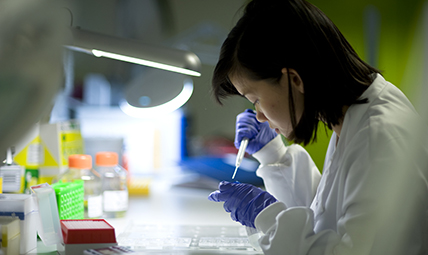- Unique collaboration between AstraZeneca, GlaxoSmithKline, Johnson & Johnson Innovation and the technology transfer offices of Imperial College London, UCL (University College London) and the University of Cambridge, to drive forward therapeutic innovation
- £40 million Apollo Therapeutics Fund aims to significantly improve the speed and potential of university research being translated into novel medicines
- First time global pharmaceutical companies and world-leading universities* have created this type of fund
London, 25 January 2016: Three global pharmaceutical companies (AstraZeneca, GlaxoSmithKline, Johnson & Johnson Innovation) and the technology transfer offices of three world-leading universities (Imperial College London, University College London and the University of Cambridge) have joined forces with a combined £40 million to create the Apollo Therapeutics Fund (‘Apollo’). This pioneering new joint venture will support the translation of ground-breaking academic science from within these universities into innovative new medicines for a broad range of diseases.
Each of the three industry partner companies (AstraZeneca UK Limited, Glaxo Group Limited and Johnson & Johnson Innovation-JJDC, Inc.) will contribute £10 million over 6 years to the venture. The technology transfer offices (TTOs) of the three university partners – Imperial Innovations Group plc, Cambridge Enterprise Ltd Limited and UCL Business PLC – will each contribute a further £3.3 million. The aim of Apollo is to advance academic preclinical research from these universities to a stage at which it can either be taken forward by one of the industry partners following an internal bidding process or be out-licensed. The three industry partners will also provide R&D expertise and additional resources to assist with the commercial evaluation and development of projects.
Drug development is extremely complex, costly and lengthy; currently only around 10 percent of therapies entering clinical trials reach patients as medicines. By combining funding for promising early-stage therapeutics from leading UK universities with a breadth of industry expertise, Apollo aims to share the risk and accelerate the development of important new treatments, while also reducing the cost.
Efficiently bringing together drug discovery expertise, potential customers, funding and project management, along with rapid decision making and execution through the Apollo Therapeutics Fund is a unique and extraordinarily exciting and valuable proposition for any academic or company that wants to see early stage ground breaking therapeutic technology progress to the clinic for patient benefit and economic return.
Iain Thomas, Head of Life Sciences, Cambridge Enterprise
Dr Ian Tomlinson, former Senior Vice President, Worldwide Business Development and Biopharmaceuticals R&D, for GSK and founder & Chief Scientific Officer of Domantis Limited has been appointed Chairman of the Apollo Therapeutics Investment Committee (AIC). Comprising representatives from the six partners, the AIC will make all investment decisions.
The AIC will be advised by an independent Drug Discovery Team (DDT) of ex-industry scientists who will be employed by Apollo to work with the universities and their TTOs to identify and shape projects to bring forward for development. All therapy areas and modalities, including small molecules, peptides, proteins, antibodies, cell and gene therapies will be considered.
Apollo will be based at Stevenage Bioscience Catalyst. Once funded, projects will be progressed by the DDT alongside the university investigators, with other external resources and also in-kind resources from the industry partners as appropriate. For successful projects, the originating university and TTO will receive a percentage of future commercial revenues or out-licensing fees and the remainder will be divided amongst all the Apollo partners.
Dr Ian Tomlinson, Chairman of the Apollo Therapeutics Investment Committee commented:
“This is the first time that three global pharmaceutical companies and the TTOs of three of the world’s top ten universities have come together to form a joint enterprise of this nature, making the Apollo Therapeutics Fund a truly innovative venture.
Apollo provides an additional source of early stage funding that will allow more therapeutics projects within the three universities to realise their full potential. The active participation of the industry partners will also mean that projects will be shaped at a very early stage to optimise their suitability for further development.
The Apollo Therapeutics Fund should benefit the UK economy by increasing the potential for academic research to be translated into new medicines for patients the world over.”
Iain Thomas, Head of Life Sciences at Cambridge Enterprise said: “Efficiently bringing together drug discovery expertise, potential customers, funding and project management, along with rapid decision making and execution through the Apollo Therapeutics Fund is a unique and extraordinarily exciting and valuable proposition for any academic or company that wants to see early stage ground breaking therapeutic technology progress to the clinic for patient benefit and economic return.”
*QS World University Rankings® 2015/16











